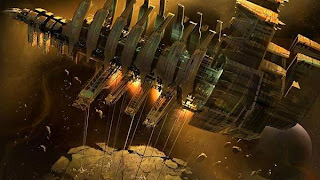 I just saw an advert for the new series of Doctor Who and I'm pretty sure I already prefer Matt Smith to David Tennant. I could quite easily write thousands of words as to why only I can't be arsed. I can very easily say that I definitely prefer Stephen Moffat to Russell T. Davies as a writer.
I just saw an advert for the new series of Doctor Who and I'm pretty sure I already prefer Matt Smith to David Tennant. I could quite easily write thousands of words as to why only I can't be arsed. I can very easily say that I definitely prefer Stephen Moffat to Russell T. Davies as a writer. The little ad gave me a shiver down my spine, quite literally and I really can't wait for the series to start. With a far, far, far, far, far superior writer at the helm and, in my eyes, a much more suited actor playing the part of the Doctor, I can't see how this series shouldn't be the best yet.
I might eat my words in a few weeks time, but I'm pretty excited. I think I'm almost as excited about this new series of Doctor Who as I was excited at the prospect that David Tennant and Russell T. Davies were finally leaving the show.





















